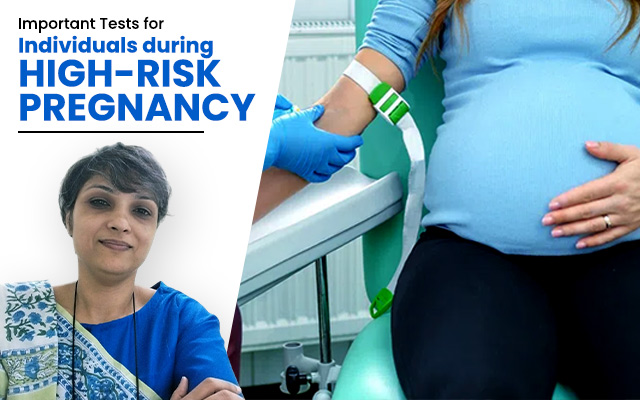A high-risk pregnancy is one where the mother, the baby, or both are at increased risk of health complications during pregnancy, childbirth, or after delivery. Several factors like age, pre-existing health conditions, multiple pregnancies, or a history of pregnancy complications can contribute to a high-risk pregnancy. Doctors monitor high-risk pregnancies closely with a series of tests to detect complications early. Learn about some of these important high-risk pregnancy tests below and the insights they offer.
Essential Tests in a High-risk Pregnancy
Here are some important tests for individuals during a high-risk pregnancy:
1. Ultrasound Scans
Ultrasound scans are one of the most important diagnostic tools during pregnancy. These non-invasive scans help monitor the baby’s development and detect abnormalities. In high-risk pregnancies, several ultrasounds may be performed at different stages. You can discuss with the doctor to know more in detail regarding these important tests.
2. Blood Tests
Blood tests provide important information about the mother’s health and the status of the pregnancy. In a high-risk pregnancy, these tests are often repeated throughout the pregnancy to monitor for complications.
3. Urine Tests
Urine tests are used throughout pregnancy to check for urinary tract infections (UTIs), kidney problems, and signs of preeclampsia. In high-risk pregnancies, they are done more frequently to monitor for:
- Protein in Urine: High protein levels in urine can be a sign of preeclampsia, a serious pregnancy complication that involves high blood pressure and organ damage.
- Urinary Tract Infections (UTIs): UTIs can lead to complications like premature labour or kidney infections, especially in high-risk pregnancies. Testing for UTIs ensures early treatment.
4. Glucose Tolerance Test
Gestational diabetes is a significant concern in high-risk pregnancies, particularly for women who are overweight, older, or have a family history of diabetes. A glucose tolerance test performed between 24-28 weeks, measures how the body processes sugar and helps diagnose gestational diabetes. Early detection allows for proper management through diet, exercise, or medication to prevent complications during pregnancy and delivery.
Conclusion
If you are experiencing a high-risk pregnancy, it’s crucial to stay in close contact with the doctor and undergo the necessary tests to ensure the best possible outcome for both you and your baby. Early detection, combined with the right care, can make all the difference in managing a high-risk pregnancy. For further guidance, you can consult Dr. Smita Jadhav, a high risk pregnancy doctor in Salt Lake.


